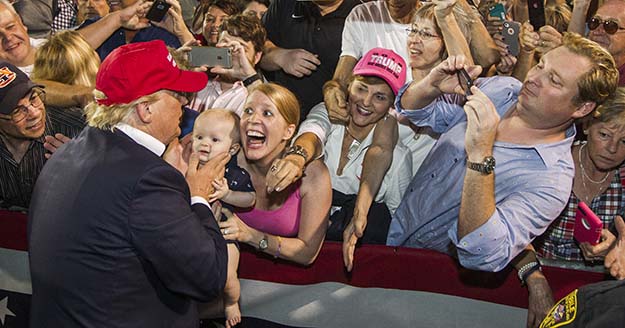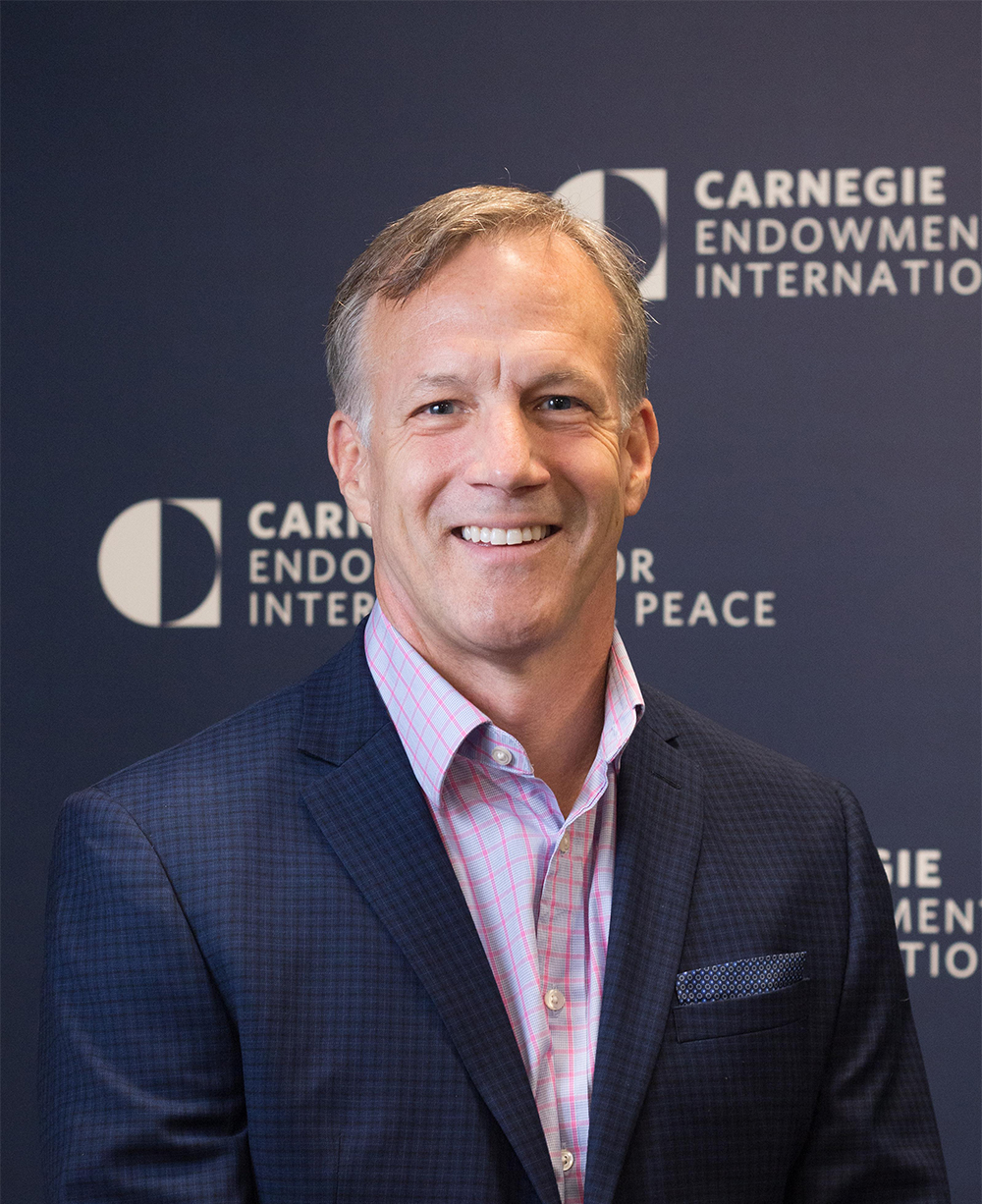When democracies and autocracies are seen as interchangeable targets, the language of democracy becomes hollow, and the incentives for democratic governance erode.
Sarah Yerkes, Amr Hamzawy
{
"authors": [
"David Rothkopf"
],
"type": "legacyinthemedia",
"centerAffiliationAll": "",
"centers": [
"Carnegie Endowment for International Peace"
],
"collections": [],
"englishNewsletterAll": "",
"nonEnglishNewsletterAll": "",
"primaryCenter": "Carnegie Endowment for International Peace",
"programAffiliation": "",
"programs": [],
"projects": [],
"regions": [
"North America",
"United States"
],
"topics": [
"Political Reform",
"Democracy",
"Economy",
"Foreign Policy"
]
}
The shallow state is in many respects the antithesis of the deep state. It actively eschews experience, knowledge, relationships, insight, craft, special skills, tradition, and shared values and in fact celebrates its ignorance of and disdain for those things.
Source: Foreign Policy
The “deep state” is the flavor of the month for conspiracy theorists, the “black helicopters” of 2017. The idea of career intelligence and military officers and bureaucrats marshaling the institutional power they have spent decades mastering to advance their goals regardless of the whims or wants of elected public officials or the people at large is irresistible, Tom Clancy stuff.
But I’ve seen what there is of a deep state, and let me tell you, based on very nearly 25 years living and working in Washington, it is not the dark fantasy of highly competent government workers that worries me.
No, what worries me is something new, more real, and much more dangerous: the shallow state.
The shallow state is in many respects the antithesis of the deep state. The power of the deep state comes from experience, knowledge, relationships, insight, craft, special skills, traditions, and shared values. Together, these purported attributes make nameless bureaucrats into a supergovernment that is accountable to no one. That is a scary prospect. But the nature of bureaucracies, human nature, inertia, checks and balances, and respect for the chain of command makes it seem a bit far-fetched to me. (The bureaucracy will drive Trump, like many presidents, mad, and some within it will challenge him, but that’s not the same thing.)
The shallow state, on the other hand, is unsettling because not only are the signs of it ever more visible but because its influence is clearly growing. It is made scarier still because it not only actively eschews experience, knowledge, relationships, insight, craft, special skills, tradition, and shared values but because it celebrates its ignorance of and disdain for those things. Donald Trump, champion and avatar of the shallow state, has won power because his supporters are threatened by what they don’t understand, and what they don’t understand is almost everything. Indeed, from evolution to data about our economy to the science of vaccines to the threats we face in the world, they reject vast subjects rooted in fact in order to have reality conform to their worldviews. They don’t dig for truth; they skim the media for anything that makes them feel better about themselves. To many of them, knowledge is not a useful tool but a cunning barrier elites have created to keep power from the average man and woman. The same is true for experience, skills, and know-how. These things require time and work and study and often challenge our systems of belief. Truth is hard; shallowness is easy.
The commander in chief of the shallow state, for example, does not have much use for reading. Or briefings. Or experts. He is famously driven instead by impulse, instinct, and ideology. He and the team around him care very little for facts. (The Washington Post has been tracking his performance, and so far the president has not let a day go by without a major lie.) Indeed, as we have seen, Trump & Co. are allergic to demonstrable, proven facts whether they be of the scientific, political, social, cultural, or economic variety. With leaders like these, the shallow state exists only on the surface, propelled only by emotion and reflex. Therefore, anything of factual weight or substance disturbs, disrupts, or obliterates it much as a rock does when dropped onto an image reflected in a pond.
We have seen shallow leaders before. Abraham Lincoln decried the Know-Nothing party and its adherents, who were a notable movement on the U.S. political landscape in the middle of the 19th century. Recent leaders like George W. Bush and Ronald Reagan were not seen as leading intellectual lights. But the Trump phenomenon is more extreme. The president of the United States with all the resources available to him wouldn’t offer up major distortions of the truth every day for more than a month absent a deep disinterest in learning or a recognition that lies may be more supportive of his positions than the truth (and that his followers are perfectly happy accepting lies). Or both. In my view, it is both. Further, Trump’s team has seemed much more focused on offering up something that is more like a television show about a president than actual governance. It plays not to newspapers — which it seeks to discredit — but to social media, animated by the belief that the actions of a government can not just be explained in 140 characters but can consist largely of tweets and photo ops and packaged images. When things require real work behind the scenes but are hard to translate to tweets or chat TV, they just don’t seem to be prioritized (like nominating people for the almost 600 open Senate-confirmable positions) or get done (like anything hard with regard to legislation).
It is convenient to blame Trump and write this off as a flaw in his character and that of his acolytes and enablers. But, honestly, you don’t get a reality TV show president with no experience and no interest in big ideas or even in boning up on basic knowledge (like the nature of the nuclear triad — after all, it has only three legs) without a public that is comfortable with that … or actively seeks it. Think about the fact that two out of the last four Republican presidents came from show biz (and a third gained a chunk of his experience as a baseball executive). There is no doubt that the rise of the cage-match mentality of cable news has undercut civility in American political discourse, but it has also made politics into something like a TV show. You switch from the Kardashians to Trump on The Apprentice to Trump the candidate in your head, and it is all one. Increasingly shows are about finding formulas that produce a visceral reaction rather than stimulate thoughts or challenge the viewer. That’s not to say that not much is wonderful in the world of media today … but attention spans are shrinking. Social media contributes to this. But the way we consume even serious journalism does, too. Much of it is reviewed in quick snippets on a mobile device. The average visit to a news website is a couple of minutes, the average time spent with a story shorter still. We skim. We cherry-pick.
When we read the news, most of us do so via the internet, with the majority of those under 30 doing so via social media. That means your Facebook page. It means not only do your friends influence what you see and read (thus creating an echo-chamber effect) but your news pops up in a stream of content that includes baby pictures and cat videos. That’s right — cat videos, among the most popular destinations on the web, are responsible for Trump, too. Because they are the competition of the news, and therefore unless it is as quick, easy to digest, visual, and satisfying as a cat video (or baby pictures), it doesn’t get read.
Much has been written about the dumbing down of America. Some of it has been pretty facile (appropriately enough). But seen in the light of the shallow state of the Trump presidency, the idea needs to be reconsidered. The electorate has not just become less patient with depth (if it mattered in elections, Hillary Clinton would have been the first unanimous winner of the presidency); it now seeks its political discourse in a form that is not that different from a reality TV show. And the consequence has been electing a former reality TV show host as president of the United States.
Life is once again imitating art. Actually, it’s worse than that. Now this president has decided that if he is shallow and his followers are shallow, he shall do what he can to make our society shallower. Perhaps that’s his most ambitious goal given the level to which we have sunk. But he is doing so nonetheless, now offering up a budget that would eliminate those small pockets within the U.S. government that promote depth or real knowledge. Scientific and economic data that undercuts his theories is being suppressed. Dissent, even from within his own ranks, is being met with firings. And he is seeking to defund the National Endowment for the Arts (NEA), the National Endowment for the Humanities, and the Corporation for Public Broadcasting. These are small programs by government standards — the NEA’s annual budget is smaller than that required to provide protection for Melania Trump to live in her New York City penthouse each year. But they celebrate those things that add depth to our collective lives, the exploration and contemplation of the human experience, of the nature of our society. And they deliver work that forces audiences and citizens to think.
Art is not an adornment to society. It is not a luxury. It is the purpose of society. It becomes our legacy. It is also, however, our teacher; it helps us consider that which is around us and what we want to be. It makes demands on us that in turn lead us to place demands on ourselves and those with whom we live and work. And that is precisely why these programs have been targeted by Trump. They are the enemies of the shallow state. So, too, of course, are the members of the press whom Trump has mislabeled as “enemies of the people.” The only people they are the enemy of are those who are at war with truth and thought: Trump and his supporters, the champions of the shallow state. That is why, while it is easy to simply be angry or to laugh at a president who doesn’t read or to be distracted by half-baked conspiracy theories like the deep state, we must recognize that the shallow state is much more pernicious. This administration has come to power because America has allowed public discourse, the quality of education we give our kids, and the standards we set for ourselves to decline. Trump seeks to institutionalize that decline. He is at war with that which has made our society great. He seeks to eviscerate the elements of our government and discredit those within our society who are champions of the depth on which any civilization depends.
And we cannot switch the channel. We cannot tweet this out of existence. We cannot unfollow him. We must fight, or we will lose that which is best about ourselves and our country.
Carnegie does not take institutional positions on public policy issues; the views represented herein are those of the author(s) and do not necessarily reflect the views of Carnegie, its staff, or its trustees.
When democracies and autocracies are seen as interchangeable targets, the language of democracy becomes hollow, and the incentives for democratic governance erode.


Sarah Yerkes, Amr Hamzawy
German manufacturing firms in Africa add value, jobs, and skills, while benefiting from demand and a diversification of trade and investment partners. It is in the interest of both African economies and Germany to deepen economic relations.
Hannah Grupp, Paul M. Lubeck
Unexpectedly, Trump’s America appears to have replaced Putin’s Russia’s as the world’s biggest disruptor.

Alexander Baunov
From Sudan to Ukraine, UAVs have upended warfighting tactics and become one of the most destructive weapons of conflict.


Jon Bateman, Steve Feldstein
And how they can respond.



Sophia Besch, Steve Feldstein, Stewart Patrick, …